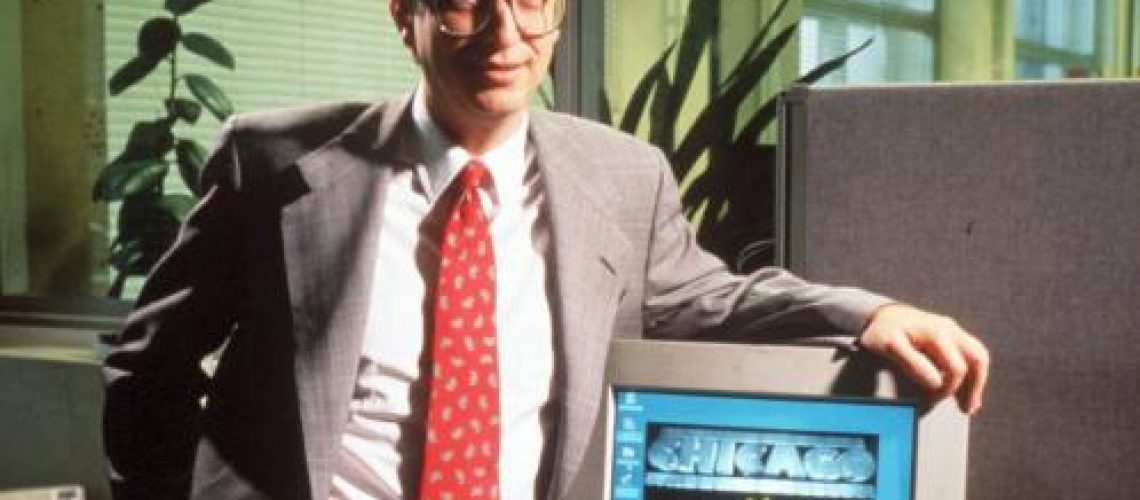The chips are down in the market for personal computers, where several big players could be forced out in the next five years unless they come up with totally new products and novel business models.

Bill Gates of Microsoft with an early desktop. Gartner believes that PC vendors must seek product innovation and new business models.
BBC
As consumers turn to smartphones or tablets, the biggest desktop PC makers — Lenovo, HP, Dell, Asus and Acer — cannot survive on profit margins of 3 per cent or 4 per cent, according to Gartner, a market research company.
“The PC business model as we have traditionally known it is broken. The top five mobile PC vendors have gained 11 per cent market share over the past five years — from 65 per cent in 2011 to 76 per cent in the first half of 2016, but this has come at the expense of profitable revenue,” Tracy Tsai, research vice-president of Gartner, said.
In the five years to 2015, global sales of PC units, including desktops, notebooks and laptops, fell by 22.5 per cent, Gartner says. It expects sales to fall a further 7.3 per cent this year and predicts that the number of PCs in use around the world will drop by 7.6 per cent between now and 2019.
Gartner believes that these trends will continue to erode revenue and profit. Ranjit Atwal, a co-author of the report, said that although big brands such as Sony had pulled out from large parts of the PC market, the remaining players survived only because of efficient supply chains.
Gartner says that to survive PC vendors must shift their focus from gaining market share and seek product innovation and new business models.
One possibility is that PC vendors could make devices for third parties, such as Facebook, which could sell them at a loss to drive customers to their platforms.
